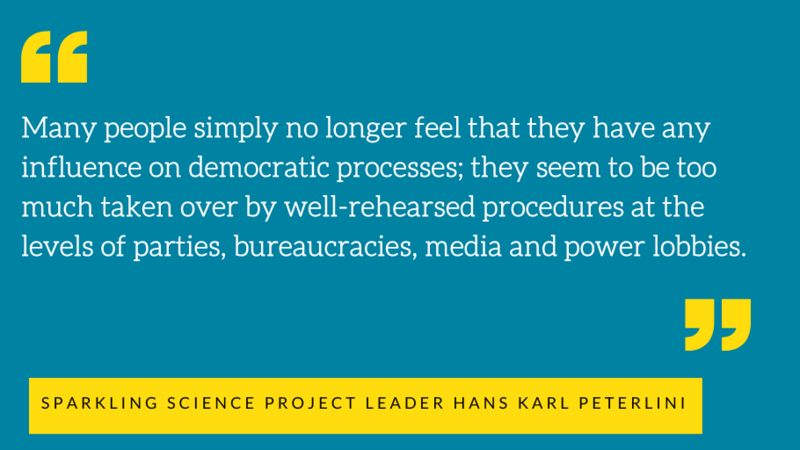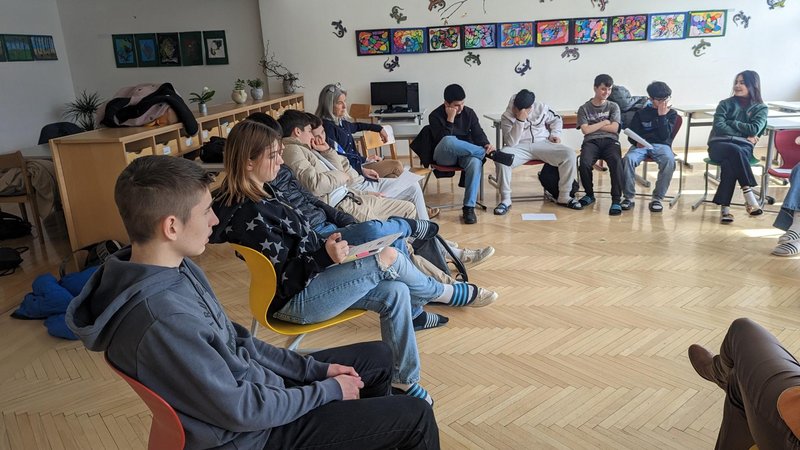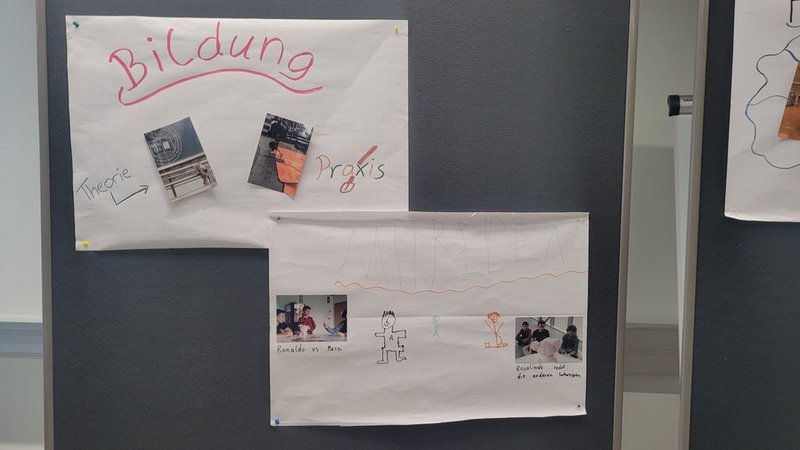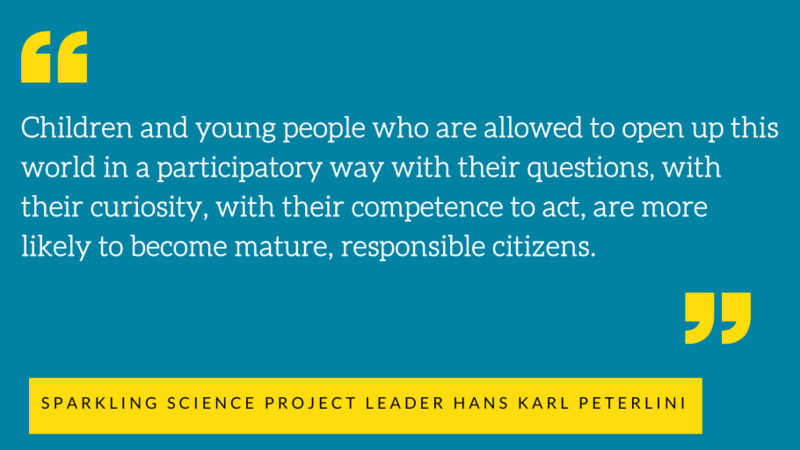Class councils and student parliaments for more democratic learning in schools
The Sparkling Science project "Transform4School" works with students according to its principle of "learning as experience" in order to make democracy a sustainable experience. In this interview, project leader Hans Karl Peterlini (University of Klagenfurt) talks about the motivation behind the citizen science project, what democracy learning can achieve and how students participate in the project.
What is the motivation behind the "Transform4School" project? And what does "learning as an experience" mean?
School has enormous potential to interest young people in questions of life, to inspire them to search for solutions to the problems of our time, and simply to awaken curiosity and a desire to create. Unfortunately, we all know how quickly this can be stifled for both teachers and students under the pressure of grading, mastering material and, in many cases, rigid hierarchical structures. Then teaching and learning is only about the next test, and the efforts of many passionate teachers end up in bureaucratic documentation constraints.
The idea behind the project is to understand learning in a new way, as an experience. This means involving everyone in school life in participatory processes on as many levels as possible.

If you look around Europe, it seems that democracy is partly standing on shaky legs. To what extent can democracy learning at school make a difference here?
Democracy is a great achievement, but you don't "have" it once and for all; you have to constantly strive for it. Democracy grows from open negotiation processes, and it suffers when these are blocked. Many people simply no longer feel that they have any influence on democratic processes; they seem to be too much taken over by well-rehearsed procedures at the levels of parties, bureaucracies, media and power lobbies. With our project, we are trying to make democracy tangible again in schools. We hope that this will encourage people to get involved in an awake and democracy-affirming civil society later on.
From class councils to parliaments for students - how exactly does the participation of young people in the project look like?
You have already mentioned the two most important keywords. The class councils are a grassroots democratic institution - here, pupils reflect and discuss, as far as possible without hierarchy, what is currently important for the class community and the individuals. These can be problems and conflicts, or concerns that need to be represented to teachers, the school administration, or the neighborhood. Class leaders also benefit from this, as they have the opportunity to actively involve students in decision-making processes, such as planning a class trip.
The parliament for students reflects representative democracy. It consists of the elected class representatives, meets regularly, discusses concerns, and drafts plans. One of the principles of participation is that it is not simply a matter of making a demand or raising a protest, but also of finding ways to discuss solutions and implementation with those responsible. Learning about rules, limits and strategies as well as how to deal with majority decisions are also part of learning democracy. Of course, we would also be open if, in addition to these instruments provided for by the project, additional initiatives were to emerge, such as a free group that organizes itself outside the designated bodies and advocates for its concerns - just like in real life.

How do you perceive young people's attitudes toward democracy? Do they want to help shape things or do they first have to be taught the value of democratic participation?
This varies greatly and also depends heavily on previous experience. Pupils often believe that only the supposedly coolest person can represent the class. That's why we also emphasize in the project that the pupils first work out for themselves what motivation and characteristics are needed to represent the class or the school. After these workshops, and especially after our first experiences, we are often surprised ourselves at how active and creative the children and young people can be. Ideas bubble up, self-efficacy takes hold, something like maturity and a sense of social responsibility grows. At the same time, it also becomes clear that not all of them want or are able to take on responsibility and feel comfortable in representative functions. Not being able or willing to do something is also an important learning experience.

In the project, you are working closely with a university of education. How will the project results be integrated into teacher training?
This is particularly important to us and I believe it is also very important to the universities of education. We experience the colleagues at the Carinthian University of Teacher Education as extremely motivated and interested, a nice cooperation has developed. However, there needs to be much more room for such content in the curricula of the universities of education; at present, this is often limited to the basics of educational science, which make up a minimal part of teacher training. Beyond that, however, the insight that teaching and learning are not causal and controllable processes would have to permeate the dominant didactic approaches. Learning processes require experimentation and experience, with the possibility of profitable failure, from which more is often learned than from passing a test. The prevailing paradigm of exact measurement and evaluation often stands in the way of such learning from and as experience.

2050 - a vision of the future: How should democracy be lived in schools in Austria?
The minimum vision would be that all schools have self-confident class councils and student parliaments. When I see how we constantly get requests from schools to involve them in our project, this even seems realistic to me. For this reason, we would like to set up a kind of platform for interested schools for a sustainable continuation of the project, through which the expertise we gain from the project can be made accessible.
The broader vision is that teaching and learning are understood as participatory from the ground up, starting quite radically with the question of what do we want to learn in the first place, when and how. This may sound anarchic, but it is based on the idea that a pre-determined body of knowledge that I have to cram through for a test, regardless of my interests that may be quite different at the time, and then be measured by a number system, does not really lead to sustainable learning. We have enough of such knowledge, and we experience in a dramatic way how unsuitable it is to solve the problems of this world. Children and young people who are allowed to open up this world in a participatory way with their questions, with their curiosity, with their competence to act, are more likely to become mature, responsible citizens.
More information
- Sparkling Science project: Transform4School
